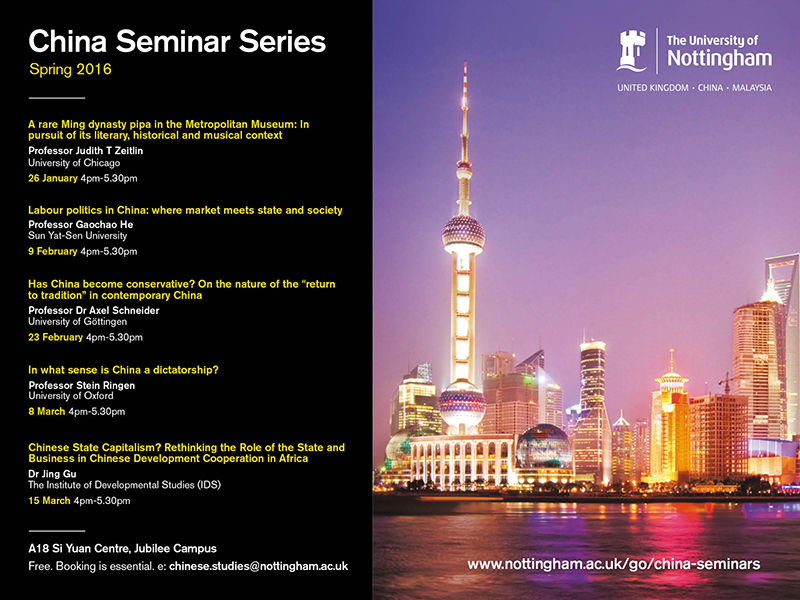A rare Ming dynasty pipa in the Metropolitan Museum: in pursuit of its literary, historical and musical context

Professor Judith T Zeitlin, University of Chicago, presents the seminar ‘A rare Ming dynasty pipa in the Metropolitan Museum: in pursuit of its literary, historical and musical context’.
Abstract from Prof Zeitlin: One of the treasures of the musical instrument collection at the Metropolitan Museum of Art in New York is a richly decorated pipa (a pear-shaped Chinese lute), made of wood, ivory, and bone, and thought to date from the late Ming (ca 1574-1644). The back of this instrument is honeycombed with some 120 ivory plaques carved with auspicious pictorial motifs, such as immortals, animals, and flowers. The pegbox terminates in a carved wooden bat or butterfly. On the front of the instrument are inset a small ivory spider and bird; an ivory-plated string holder with an operatic scene is glued to the wooden belly; another ivory plaque pictures a boy and a man holding a fish. The wooden belly is worn and has scratches around the string holder, suggesting that despite its lavish ornamentation, the pipa had been played in the past and was not merely for display.
What was this instrument? Where might it have been fashioned and who could have played it? What does its decorative program mean and why was it ornamented so lavishly? And above all what can this sort of highly wrought luxury object tell us about the representation and social practice of music in early modern China?
My talk attempts to situate this instrument within the literary, historical, and cultural context of early modern music, theater, and decorative objects. To interpret the cultural meanings of this enigmatic object, I will take two approaches: intrinsic and extrinsic. By intrinsic, I mean studying the decorative program, material, and design of the object itself; by extrinsic, I mean studying how such an instrument might have been treated and given meaning by others in the early modern period. In this latter pursuit, I focus on the famous playwright Kong Shangren (1648-1718), who was a keen collector of antique musical instruments and who wrote his first play on an antique instrument he owned. The final part of the talk will introduce a collaborative project undertaken with composer Yao Chen and pipa virtuoso Lan Weiwei on imagining the sounds of the early modern pipa in twenty-first century music.
Admission free. To book email chinese.studies@nottingham.ac.uk
Part of the China Seminar Series.
Tags: China, China Seminar Series, Judith Zeitlin, School of Contemporary Chinese Studies, series, University of Chicago
Leave a Reply
Upcoming Events


